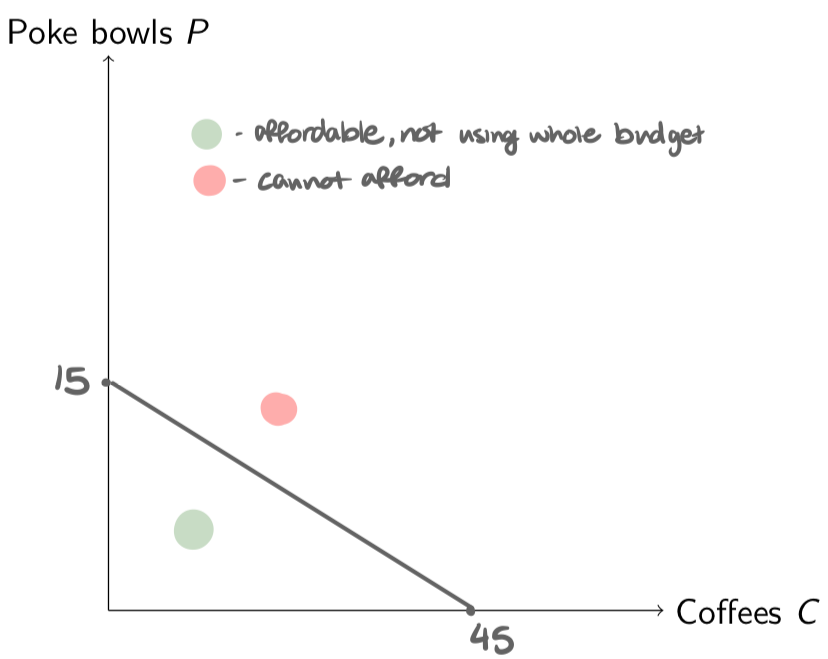principles of economics
1/13
There's no tags or description
Looks like no tags are added yet.
Name | Mastery | Learn | Test | Matching | Spaced |
|---|
No study sessions yet.
14 Terms
cost benefit principle
before you make a decision:
evaluate the full set of costs and benefits
only make that choice if benefits are at least as big as the costs
willingness to pay
convert non-financial costs or benefits into their monetary equivalent → “what is the most i am willing to pay to get this benefit (or avoid that cost)?
economic surplus
the total benefits minus the total costs flowing from a decision
measures how much a decision has improved your well-being
you generate economic surplus every time you make a decision in accordance with the cost-benefit principle
maximized when marginal benefit equals the marginal cost
opportunity cost principle
the opportunity cost of choosing any one alternative is the value of the next best alternative that is given up
limited resources
land - natural endowments
labour - physical and mental human resources
capital - manufactured aids to production
also - attention, time, money, etc.
scarcity
our wants outweigh our ability to produce those wants with our resources
thus, scarcity makes opportunity costs (trade-offs) inescapable
economics is the study of the use of scarce resources to satisfy unlimited human wants, and how people make decisions
production possibilities frontier (PPF)
shows the different sets of output that are attainable with your scarce resources, reveals your opportunity costs
illustrates the trade-offs you confront when deciding how to allocate your scarce resources (like your time)

sunk costs
a cost that has been incurred and cannot be reversed. exists in whatever choice you make
irrelevant to current decision at hand because these costs are associated with every alternative moving forward
marginal principle
decisions about quantities are best made incrementally
to break “how many” decisions down into a series of smaller (marginal) decisions
ex. instead of “how many workers should i hire?” → “should i hire one more worker?”
apply cost-benefit principle to this marginal decision to answer this question
hire additional worker is marginal benefit exceeds marginal cost
marginal benefit
benefit derived from one more unit (of goods purchased, hours of studying, etc.)
marginal cost
the extra cost from one more unit
rational rule
if something is worth doing, keep doing it until your marginal benefits equal your marginal costs
every additional unit acquired use it the marginal principle will increase your economic surplus (surplus = benefit costs)
interdependence principle
your best choice depends on:
your other choices
the choices others make
developments in other markets
expectations about the future
when any of these factors change, your best choice might change
MCOI
when confronting problems:
Marginal principle by breaking down how many choices into simpler marginal choices
Cost-benefit principle by assessing relevant costs and benefits
Opportunity cost principle to ask “or what?”
Interdependence principle to help identify how changes in factors might lead you to a different decision